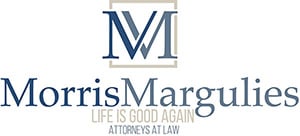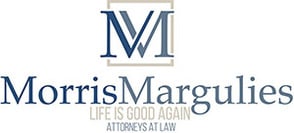After your bankruptcy has been discharged and you have received your much-needed fresh start, you may ask yourself, “Where do I go from here?” There are a number of great possibilities for your financial future, as long as you stay disciplined. However, there are also a few important things to watch out for.
One question many people have after bankruptcy is how long their credit report will be affected by the bankruptcy. According to the Equifax Finance Blog (www.blog.equifax.com), the court record of your bankruptcy after a Chapter 7, Chapter 11 or a non-discharged or dismissed Chapter 13 stays on your credit file for 10 years from the date of filing. The actual debts are removed after 7 years. However, the court record of a discharged Chapter 13 bankruptcy generally stays on your credit file for seven years from the date the case is filed, so it will be removed the same time as the list of debts. Although this may seem like a long time, the good news is that your credit score starts to improve much sooner than that. In fact, according to the National Association of Realtors, two years after you receive your discharge is the ideal time to apply for a mortgage loan, assuming you have the requisite deposit and income.
For example, the FHA (Fair Housing Administration) will insure mortgages two years after your Chapter 7 discharge date. However, you must have established good credit during those two years and cannot have any late payments, collections, judgments or other credit problems. But if you went into bankruptcy because of conditions that were out of your control, such as the death of a spouse, a serious illness or a natural disaster, the FHA will permit you to qualify only one year after your discharge date.
However, the challenge will be to rebuild your credit during those two years. The first thing to do, if you haven’t already, is to open checking and savings accounts with a reputable bank. If you are eligible to join a credit union, sometimes that can be the most affordable option. Once you have a bank account, apply for a secured credit card. A secured credit card is one where you deposit your own money in the account, and draw on those deposits as your credit line. When you do this, the secured credit card will report your positive payment history to the credit bureaus. After you have used your secured card for a few months, try applying for a gasoline credit card or a department store credit card. When you make purchases, pay off your balance in full every month to keep from piling up the debt again. And make sure to pay all your bills on time, of course.
One thing to watch out for is that your credit report accurately reflects your bankruptcy. It is a good idea to send a copy of your bankruptcy petition and order of discharge to all three credit bureaus to make sure they are accurately reporting your bankruptcy. If you discover that your bankruptcy is being reported inaccurately, make sure to dispute the incorrectly reported items. If one of your creditors refuses to remove an incorrectly reported item, contact your attorney to determine if you may have a claim against that company under the Fair Credit Reporting Act.
Another thing to watch out for is attempts by your creditors to collect any debts that have been already discharged in your bankruptcy. If a creditor or collection agency attempts to collect any of your discharged debts, this is a violation of the “discharge injunction,” under 11 U.S.C. § 524, which gives you a right to sue them and recover damages. If you receive any phone calls, letters or lawsuits from your creditors after you have received your discharge, contact your attorneys at Laura Margulies & Associates, LLC immediately.
Fred Nix is an associate at the law firm of Laura Margulies & Associates, LLC who represents consumer debtors. He can be reached at 301-816-1600.

